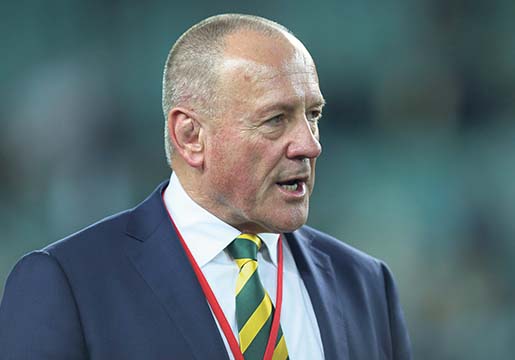 Grand Finals and World Cups - the coach who won them all
A Penrith junior, Tim Sheens played and coached the club throughout the 1970s and 1980s.
He moved to Canberra, where he coached the Raiders to the only three Premierships they have ever won.
After a spell at North Queensland, he won another Grand Final with Wests Tigers before leadin
Grand Finals and World Cups - the coach who won them all
A Penrith junior, Tim Sheens played and coached the club throughout the 1970s and 1980s.
He moved to Canberra, where he coached the Raiders to the only three Premierships they have ever won.
After a spell at North Queensland, he won another Grand Final with Wests Tigers before leadin Rugby League Heroes: Tim Sheens
 Grand Finals and World Cups - the coach who won them all
A Penrith junior, Tim Sheens played and coached the club throughout the 1970s and 1980s.
He moved to Canberra, where he coached the Raiders to the only three Premierships they have ever won.
After a spell at North Queensland, he won another Grand Final with Wests Tigers before leadin
Grand Finals and World Cups - the coach who won them all
A Penrith junior, Tim Sheens played and coached the club throughout the 1970s and 1980s.
He moved to Canberra, where he coached the Raiders to the only three Premierships they have ever won.
After a spell at North Queensland, he won another Grand Final with Wests Tigers before leadin 